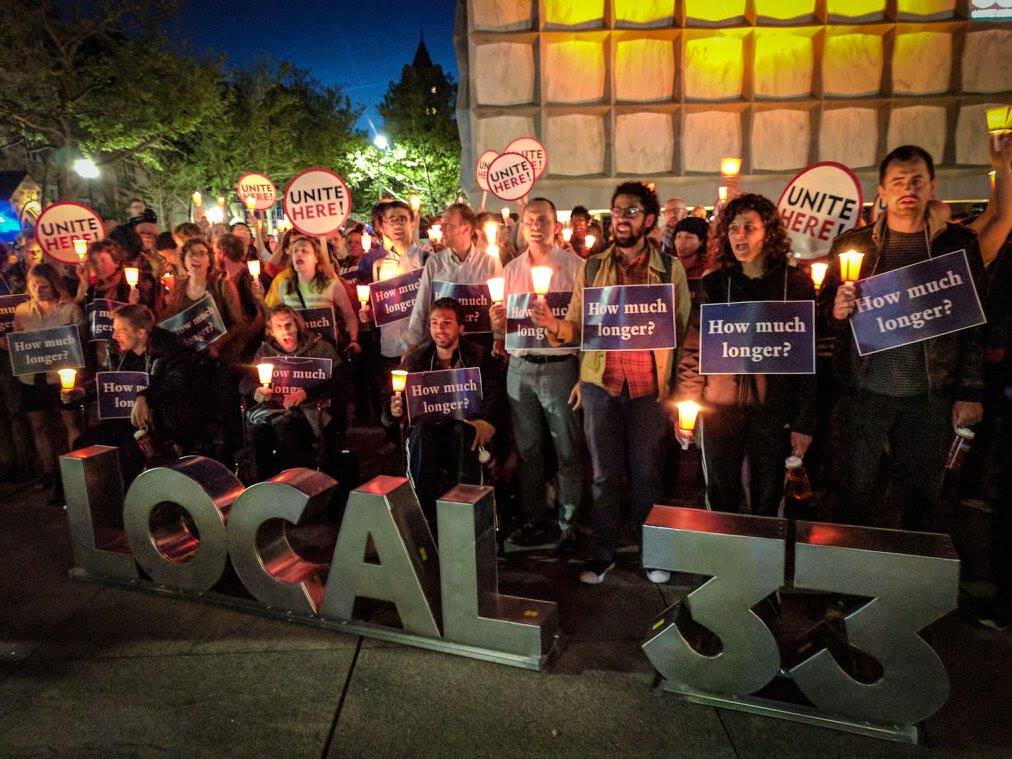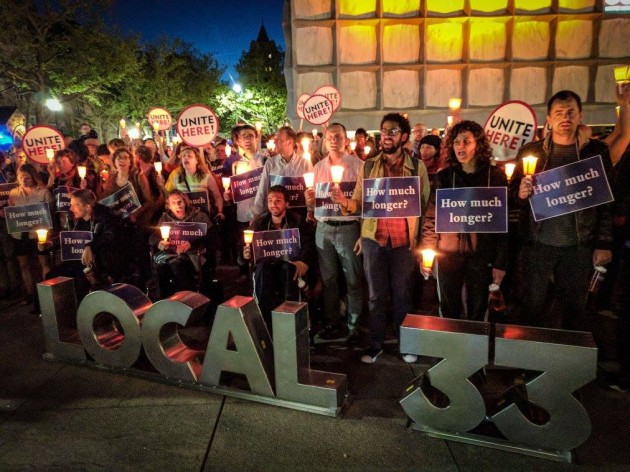
Jewish Women on the Ramparts for Graduate-Worker Unions

Yale University graduate students at a vigil for the hunger fast. (Photo from Local 33-Unite Here’s Facebook page).
“It’s not something I ever thought I’d have to do to get the university I attend, and work at, to follow the most basic labor law,” said Lena Eckert-Erdheim. She’s a graduate student worker at Yale University, and she’s talking about her eight-day fast, part of the #FastAgainstSlow. Though she wasn’t raised in a religious family, Eckert-Erdheim said that for her “fasting has a spiritual element to it… it’s an act that speaks very powerfully to many traditions.”
Why did Eckert-Erdheim decide to go on a hunger strike? In February, eight of the nine departments at Yale whose graduate student workers voted on whether to join a union, voted yes. However, the administration has refused to acknowledge—let alone negotiate with—the union. Instead, they have appealed the vote to National Labor Relations Board (NLRB). Graduate workers are seeking, among other things, improved child care, better health care, and a sexual harassment grievance procedure. In response to the administration’s continued refusal to negotiate, grad workers at Yale embarked on the hunger strike that Eckert-Erdheim participated in, which lasted until Yale’s commencement on May 22.



